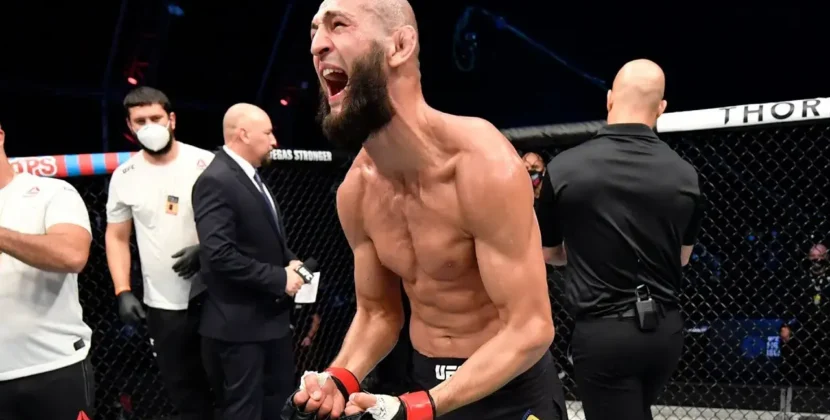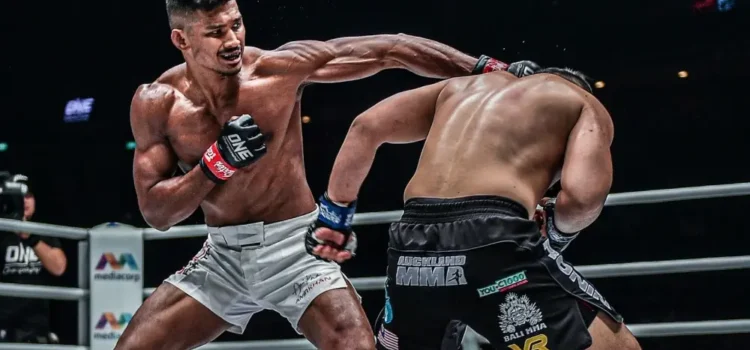
When it comes to betting on mixed martial arts (MMA), many people may assume that it’s a straightforward process. After all, it might seem like a simple 50/50 chance: you pick one fighter to win, and if they do, you cash in. However, as you delve deeper into the nuances of each fight, the history of the fighters, their styles, and various other factors, it quickly becomes clear that betting on MMA is much more complex than it appears. In this article, we’ll explore four key strategies that can enhance your MMA betting experience and improve your chances of winning.
1. Analyze Fighting Styles
One of the most fundamental aspects of MMA betting is understanding the fighters’ styles. Each fighter has a unique approach to combat that can heavily influence the outcome of a match. This is often summarized in the age-old cliché: “styles make fights.”
Understanding Styles
To break this down, let’s consider a hypothetical matchup: a striker versus a grappler. The striker is adept at standing and trading punches, while the grappler excels at taking the fight to the ground. In this scenario, the grappler will likely try to take down the striker, neutralizing their striking advantage. This dynamic creates a mental game where each fighter must implement a strategy to counter their opponent’s strengths while exploiting their weaknesses.
Implications for Betting
When assessing a fight, it’s crucial to analyze how each fighter’s style plays into the matchup. Does the grappler have a history of successfully taking down strikers? Does the striker possess a strong takedown defense? Reviewing past encounters between similar styles can offer insights into how the fight might unfold. For instance, if the striker has consistently struggled against grapplers, it may be prudent to bet against them in the upcoming fight.
Game Plans
Moreover, consider the potential game plans each fighter might employ. A smart fight camp will tailor their approach based on their opponent’s style. If a striker knows they’re up against a grappler, they may focus on improving their takedown defense in preparation. Conversely, the grappler may work on striking to keep the fight standing. These tactical adjustments can influence the odds significantly, and savvy bettors should pay attention to the fighters’ training camps and fight strategies leading up to the event.
2. Review Professional Fight Records
A fighter’s history is a treasure trove of information for bettors. While past performances can indicate future success, it’s essential to dig deeper than just win-loss records. Here’s how to approach analyzing fight records effectively.
Look for Patterns
Focus on how fighters have performed against opponents with similar styles. For example, if a striker has faced multiple grapplers and consistently lost, this trend may indicate vulnerabilities. Alternatively, if they have had success against grapplers in the past, it may bolster confidence in their ability to win against a particular opponent.
Analyze Recent Fights
Recent performance is also a critical factor. A fighter may have a strong record overall but could be on a downward trajectory, losing their last few fights. Conversely, a fighter with a recent string of victories—especially against tough competition—may carry positive momentum into their next fight. Evaluating not just wins and losses but the quality of opponents faced can provide better insights into how a fighter may perform in future matchups.
Special Situations
Also, consider special situations in a fighter’s career, such as moving up or down in weight class, injuries, or changes in training camps. These factors can dramatically alter a fighter’s effectiveness and should be taken into account when placing bets.
3. Assess Physical Attributes: Strength, Speed, and Power
While technique and style are critical in determining a fight’s outcome, physical attributes can play an equally significant role. The importance of strength, speed, and power should not be underestimated.
Strength vs. Power
It’s essential to distinguish between strength and power. Strength refers to the physical ability of a fighter, while power is the ability to effectively translate that strength into impactful strikes or grappling maneuvers. For instance, a fighter may be incredibly strong but lack the technique to utilize that strength effectively, which can hinder their performance in the cage.
The Role of Speed
Speed is another crucial factor in MMA. A faster fighter can evade strikes, counterattack effectively, and create openings that a slower opponent might miss. Speed can significantly change the dynamics of a fight, allowing a fighter to dictate the pace and distance. While it’s common to see smaller fighters with exceptional speed, it’s essential to evaluate the speed of each fighter relative to their opponent, regardless of size.
Overall Physicality
When assessing fighters, consider how their physical attributes may influence their chances of success. If a fighter typically relies on brute strength but faces a technically superior opponent, their chances of winning may diminish unless they can effectively utilize their physical advantages. Make sure to evaluate how each fighter’s physicality aligns with their fighting style and the specific matchup.
4. Monitor Weigh-Ins and Weight Cutting
Weight cutting is a significant aspect of MMA that can impact fighters’ performances. Fighters often undergo a rigorous weight-cutting process to meet their weight class, sometimes losing significant water weight just days before the fight.
The Weight-Cutting Process
Most fighters engage in weight cutting through various means, including saunas, hot baths, and dehydration techniques. While some fighters manage to successfully cut weight and perform well, others may struggle. Watching the weigh-ins is crucial because fighters who appear fatigued, unsteady, or weak may be negatively affected by their weight-cutting process.
Signs of Dehydration
Signs of dehydration, such as sluggishness or difficulty standing, can indicate that a fighter may be in trouble. If a fighter looks weak or drained during weigh-ins, this could be a red flag for their upcoming performance. In such cases, it may be wise to bet against them or reconsider any bets you were planning to place.
Regulatory Changes
It’s also worth noting that some regions have begun regulating weight-cutting practices. In places like the UK, extreme weight-cutting methods are prohibited, as they can pose serious health risks to fighters. Understanding the regulatory environment surrounding weight cutting can provide additional context for how fighters approach their weigh-ins and overall health, further informing your betting decisions.
Conclusion
Betting on MMA can be a thrilling experience, but it’s essential to approach it with a strategic mindset. By analyzing fighting styles, reviewing professional fight records, assessing physical attributes, and monitoring weigh-ins, you can position yourself for more successful betting outcomes.
Remember, the complexity of MMA requires a nuanced understanding of the fighters and the intricacies of each matchup. Betting isn’t just about picking a winner; it’s about using available information to make informed decisions. By employing these four strategies, you can enhance your MMA betting experience and increase your chances of walking away with wins. Happy betting!












